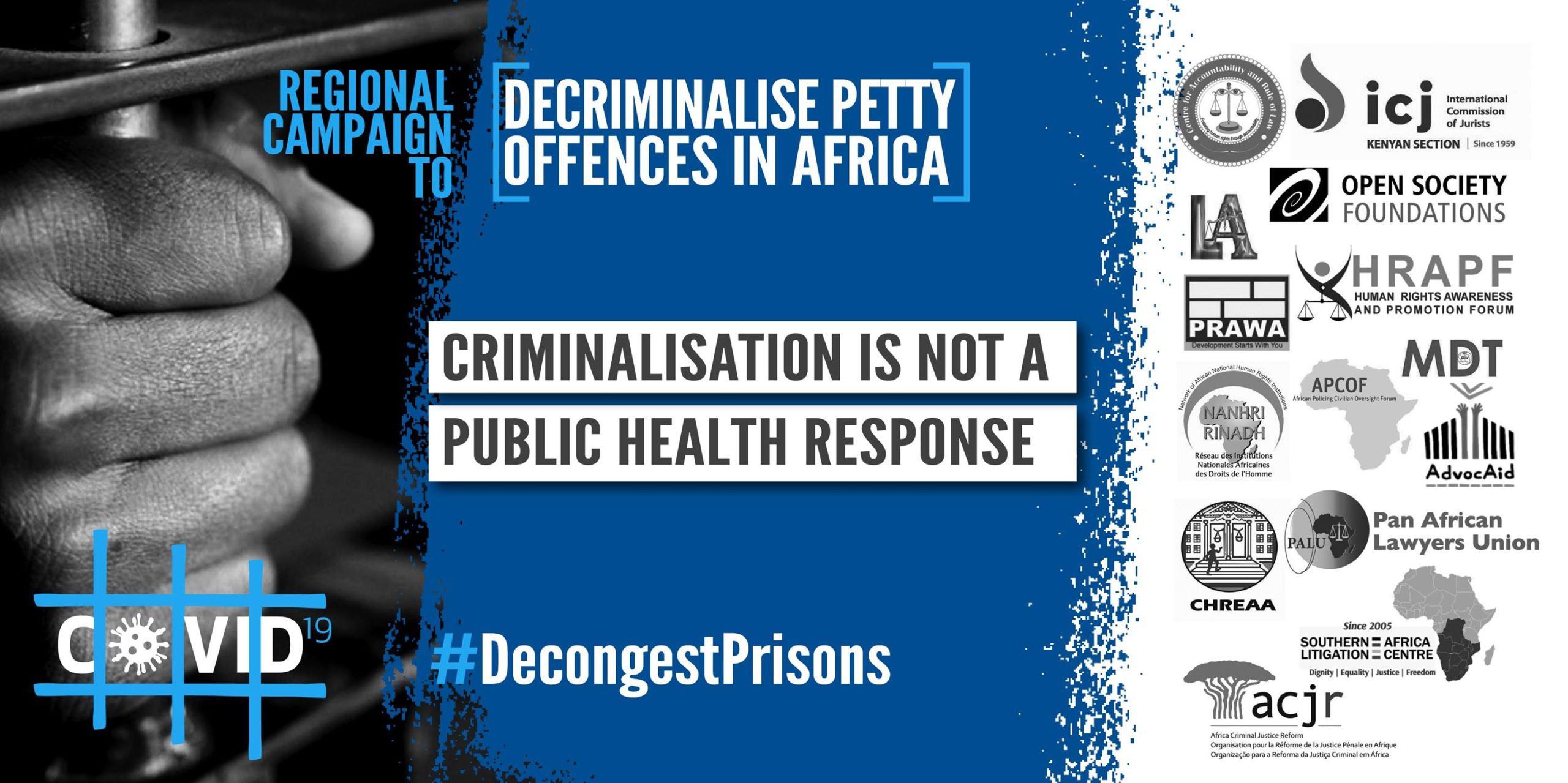On 4 June 2020, AdvocAid’s legal manager Lydia Kembabazi was a panelist for the Africa Criminal Justice Reform (ACJR) webinar on COVID-19 and petty offences in West Africa. Lydia gave an insight into how measures taken to protect the Sierra Leone population from the virus are impacting the rights of women.

Campaign on the Decriminalisation and Declassification of Petty Offences in Africa, composed of civil society organisations across the continent, has as its aim reform in law, policy and practice that would address the arbitrary and discriminatory nature of these laws and by-laws and their enforcement.
New Petty Offences And Their Impact On Women’s Rights
COVID-19 regulations and the creation of new petty offences in Sierra Leone
In Sierra Leone, restrictions put in place by the Government to combat the COVID-19 pandemic, such as the restriction of inter-district travels and curfew hours, have led to the creation of new petty offences. Whilst we know the COVID-19 restrictions are essential, the pandemic has created tradeoffs between fundamental human rights and the urgent need to flatten the curve.
“We are witnessing that the new restrictions are without a doubt disproportionately and negatively affecting the most vulnerable in our community; our women and girl children.”
COVID-19 restrictions and the criminalisation of women
These are some ways we have seen in which the criminalisation of COVID-19 related petty offences has been impacting women:
Trade hours and their impact on market women: AdvocAid has witnessed the number of personal debt cases increasing during the pandemic. Market women cannot sell as much because trade hours have been limited and they must close up earlier to get home before curfew. This can cause women to fall short on their loan payments as their earnings are reduced while the costs of living have increased.
Curfew regulations and their consequences for commercial sex workers: Commercial sex workers have been severely affected and they are often arrested for violating curfew regulations. If they are with a client and do not have the option to leave in time, they risk breaching the curfew or being forced to spend the night at their client’s home without getting compensated accordingly.
Lockdown restrictions and their impact on women as caregivers: Periods of total lockdown have had a disproportionate impact on women as they are often the family’s primary caregiver. AdvocAid intervened in a number of cases during the two total lockdowns where women had been arrested for leaving their houses to collect food and water to provide for their family.
A case study from the field: Arrested for not wearing a face mask
A few weeks ago, our team met Assanatu*. Assanatu is one of the many people who could not afford to buy a face mask, when the Sierra Leone Government made it compulsory to wear a mask in public. With trading hours restricted by curfews, most of her earnings were spent on providing for her new-born son. Assanatu went out without a mask to sell her goods and was caught by a police officer. When AdvocAid’s Programme Manager, Julie was alerted to the situation, she managed to mediate for Assanatu’s immediate release and provided her with a mask to prevent her being arrested again in the future.
Prison overcrowding due to arrests linked to COVID-19 related petty offences
Already before the outbreak of the coronavirus and the related new restrictions, prison overcrowding – which is largely connected to the criminalisation of petty offences – was an issue we have been highlighting. During this pandemic, even more people are being arrested for petty offences created by the new restrictions which are disproportionately impacting women. Additionally, the suspension of court hearings has affected the right to due process. This especially impacts those with petty offences cases as they could have been easily discharged, granted bail, or been given suspended sentences.
Working Towards The Decriminalisation of Petty Offences
During this pandemic, we continue our efforts towards the decriminalisation of petty offences. AdvocAid has been engaging the police on the need to use non-custodial measures for COVID-19 related offences and other petty offences. There is a need to consider alternative measures, particularly in the case of civil matters and we have already seen results from our advocacy work. We have seen a number of cases where in police stations the officers decide to not take on a case and rather than detaining the woman, come up with alternative dispute resolutions.
We are committed to developing and working with the international community to develop new and creative ways to adapt to the demands of the pandemic. Poverty is not a crime and we must ensure that the COVID-19 pandemic will not lead to a further decriminalisation of the already marginalized but that we continue to protect and promote human rights throughout this health crisis. We all play a vital role in ensuring that all our measures are necessary, proportionate, nondiscriminatory, and compliant with national, regional, and international human rights standards.
To find out more about ACJR, or get additional information on the webinar, you can contact them via acjr@uwc.ac.za.
– ENDS –
About AdvocAid
AdvocAid provides access to justice, education and empowerment for women and girls in Sierra Leone. For more information about our work, please visit our website.
